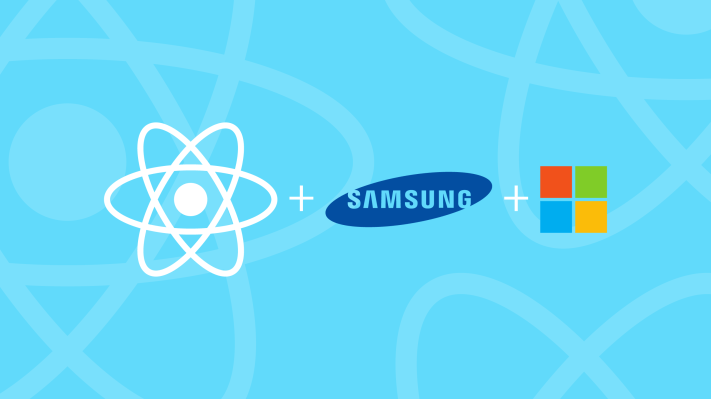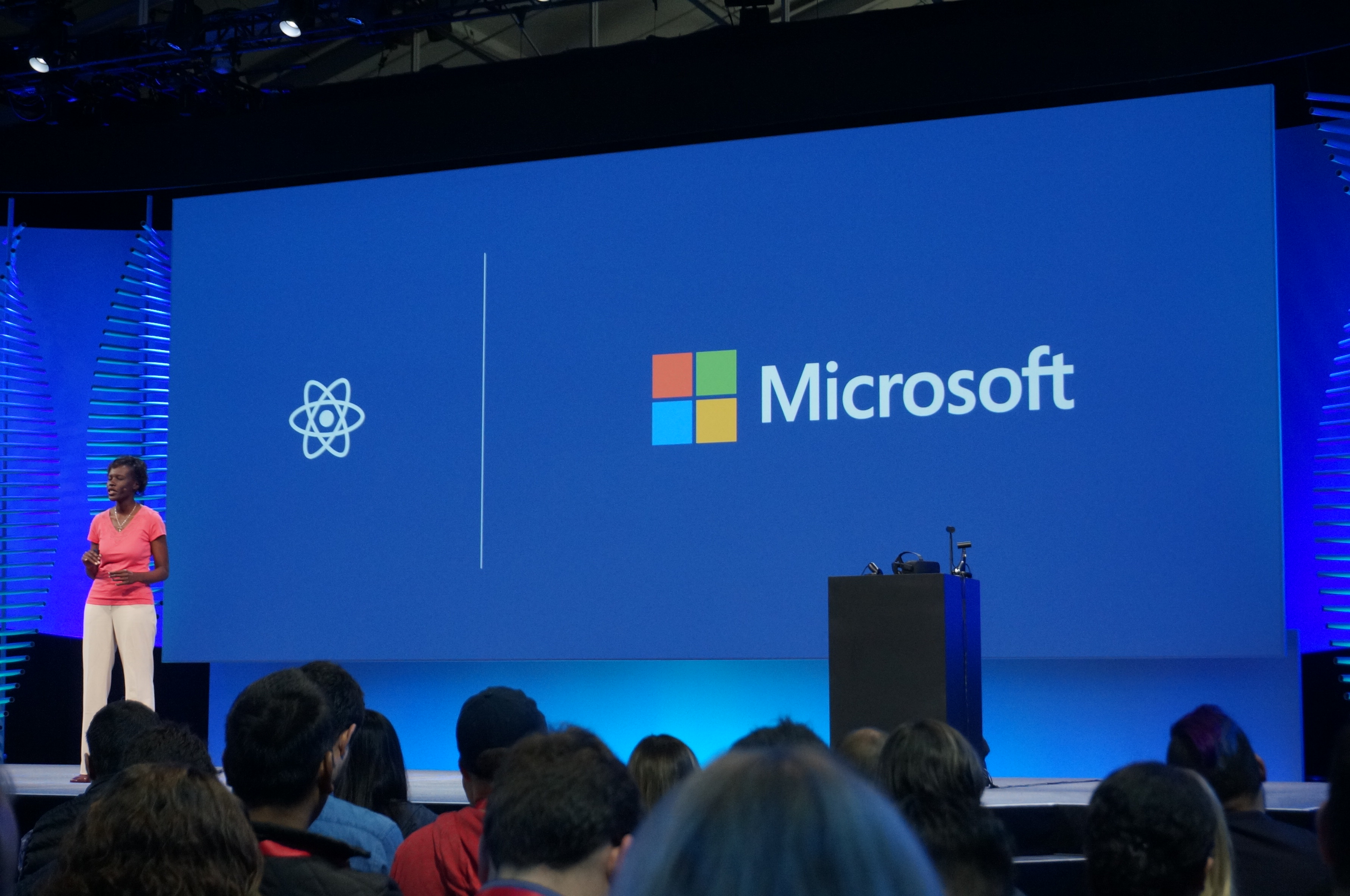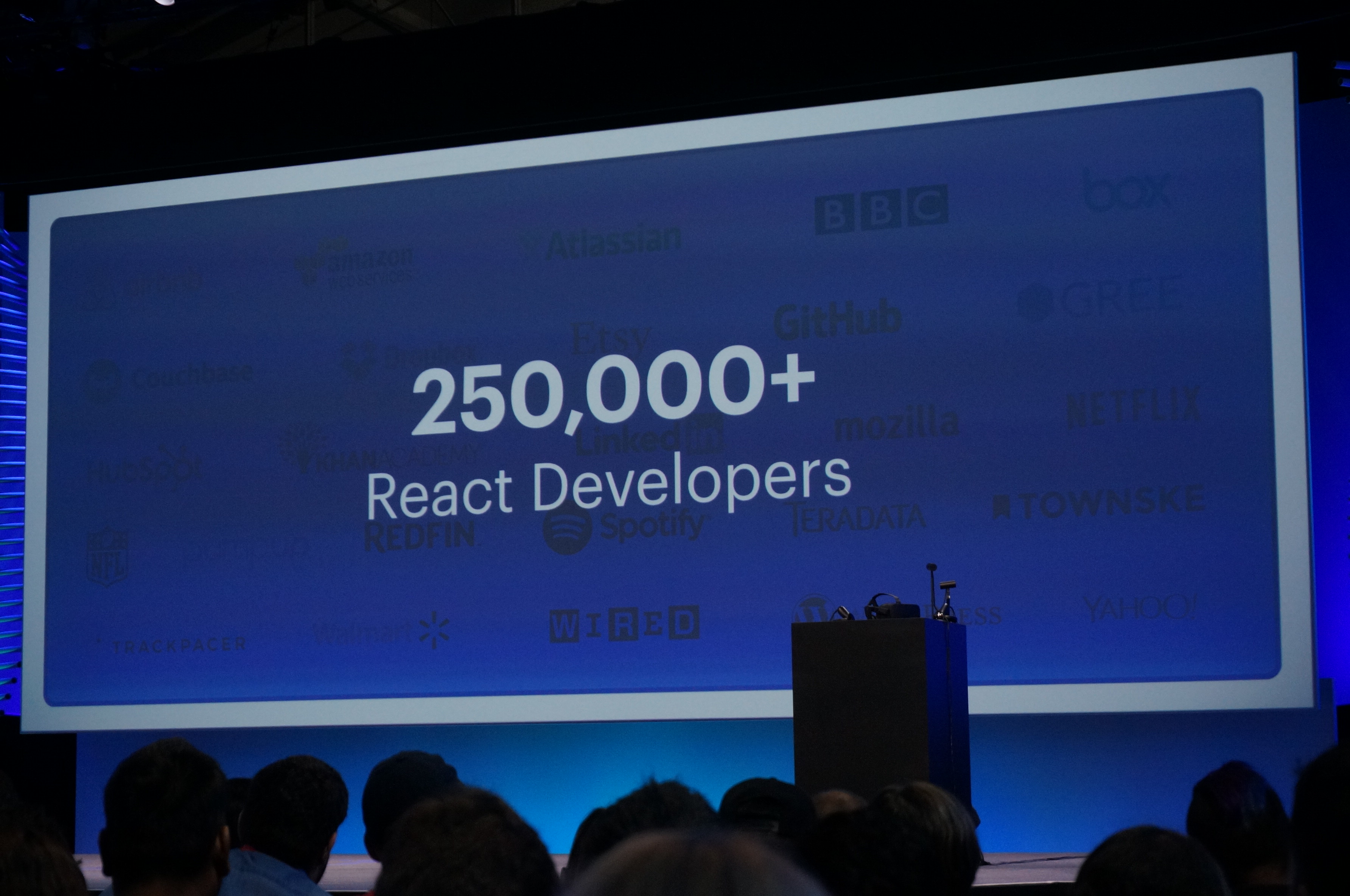React Native was originally developed by Facebook to allow its developers to take React, a framework for helping developers build single-page apps the company developed in-house, and allow them to use these same skills to build native mobile apps for iOS and Android.
As the company announced at its F8 developer conference today, React Native has now been used by more than 500 companies and developers who published apps to Apple’s app store, and more than 200 companies and developers who published apps on Google’s Play store (React Native for Android is newer, which explains at least some of this difference in numbers).
What’s maybe even more important, though, is that the React ecosystem continues to grow on the open-source side, too. Facebook says more than 600 people have committed code to React Native’s codebase since the company open-sourced the project at F8 last year. The company also says more than 250,000 developers currently have the React tools (the basis for React Native) installed.
In addition, the company today announced that both Microsoft and Samsung have committed to bringing React Native to Windows 10 and Tizen, respectively. This means developers will soon be able to use React Native to write apps for the Universal Windows Platform (and for the Universal Windows Platform, that may also mean that more developers will now support it, too). Samsung’s Tizen HTML5-based platform mostly powers Smart TVs and smartwatches, so this opens up a new market for these apps, as well.
That’s plenty of news already, but Facebook itself is bringing its own Facebook SDK to React Native, as well. With this, developers will be able to easily bring standard Facebook features like Sharing, App Analytics and Facebook’s Graph API to their apps.
Ahead of F8, I had a chance to talk to Adam Wolff, Facebook’s Director of its Product Infrastructure team, which is responsible for projects like React, GraphQL and Flow. He told me that the success of React Native as an open-source project took him by surprise. For the company itself, though, deciding to go the open-source route wasn’t ever really in question. “If you are making things for developers, you have to open-source them now,” Wolff told me. In his view, Facebook only benefits from having the community help it solve problems, though he also acknowledged that what Facebook needs is occasionally different from what the community is looking for — largely because Facebook operates at a very different scale from other companies. For the most part, though, he thinks that being transparent and clear about pull requests and what the company is looking for will ensure that the community understands Facebook’s decisions.
Wolff also stressed that he sees today’s announcements from Microsoft and Samsung as good examples for how healthy the React Native ecosystem is.
Wolff tells me his team’s main focus is currently on ensuring that React Native is fast. “We want it to be competitive with every native experience,” he said. One of the reasons for this is that as teams develop new features for the main Facebook mobile apps, they now often opt for using React Native — and users should never be able to tell the difference.
To help other developers see how the company uses React Native internally, the company is open-sourcing the F8 app with documentation.


